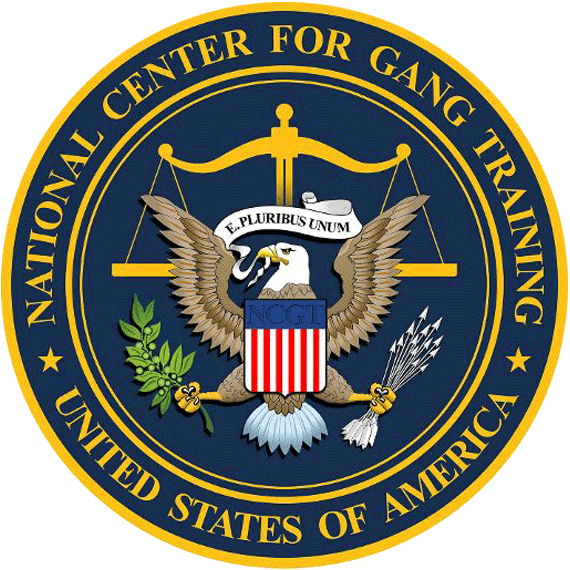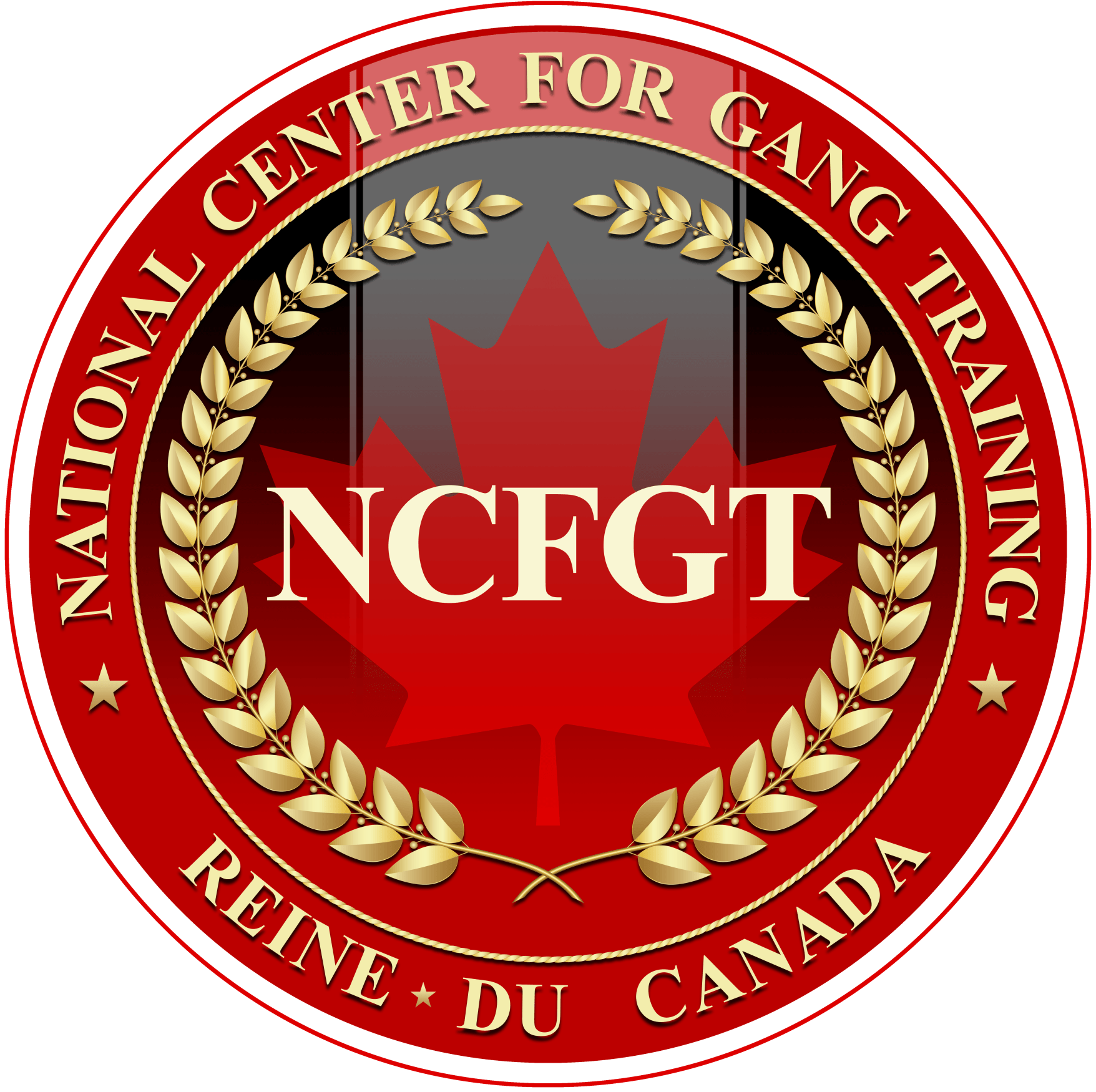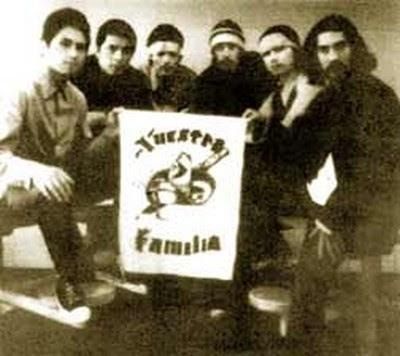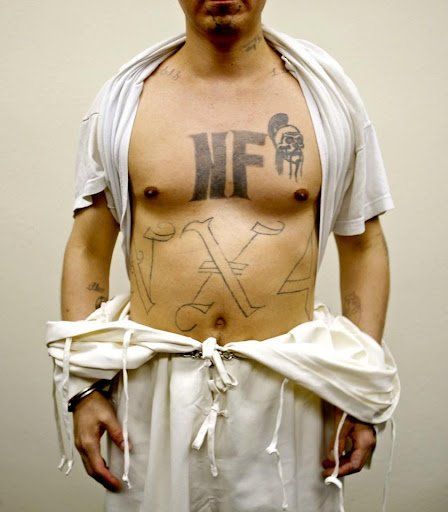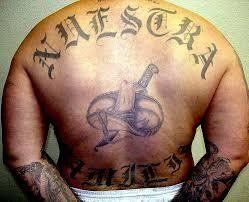Nuestra Familia
8.i
Nuestra Familia (Spanish for "our family") is a criminal organization of Mexican American (Chicano) prison gangs with origins in Northern California. While members of the Norteños gang are considered to be affiliated with Nuestra Familia, being a member of Nuestra Familia itself does not signify association as a Norteño. Some law enforcement agents speculate that the Nuestra Familia gang, which operates in and out of prisons, influences much of the criminal activity of thousands of Norteño gang members in California. The gang's main sources of income are distributing cocaine, heroin, marijuana, and methamphetamine within prison systems as well as in the community and extorting drug distributors on the streets.
Origins
Nuestra Familia was organized in Fresno, California, correctional facilities in 1968.
In the late 1960s, KRIME Mexican-American inmates of the California state prison system began to separate into two rival groups, Nuestra Familia and the 1957-formed Mexican Mafia, according to the locations of their hometowns (the north-south dividing line is near Bakersfield, California.)
Nuestra Familia were prison enemies of the Southern Latinos who comprised La Eme, better known as the Mexican Mafia. While the Mexican Mafia had initially been created to protect Mexicans in prison, there was a perceived level of abuse by members of La Eme towards the imprisoned Latinos from rural farming areas of Northern California. The spark that led to the ongoing war between Nuestra Familia and members of the Mexican Mafia involved a situation in 1968 in which a member of La Eme stole a pair of shoes from a Northerner at Deuel Vocational Institute in Tracy. This event put into motion the longest-running gang war in the state of California.
Operation Black Widow
Federal law enforcement agencies, long unable to infiltrate Nuestra Familia, began to step up their investigations in the late 1990s. In 2000 and 2001, 22 members were indicted on Racketeer Influenced and Corrupt Organizations Act (RICO) charges, including several who were allegedly serving as high-ranking gang leaders while confined in Pelican Bay. Thirteen of the defendants plead guilty; the other cases are still ongoing. Two of the defendants face the death penalty for ordering murders related to the drug trade. The largest of the federal investigations was Operation Black Widow. At the time of Operation Black Widow, law enforcement officials had estimated that Nuestra Familia was responsible for at least 600 murders in the previous 30 years.
In the aftermath of Operation Black Widow, the five highest-ranking leaders of Nuestra Familia, James "Tibbs" Morado, Joseph "Pinky" Hernandez, Gerald "Cuete" Rubalcaba, Cornelio Tristan, and Tex Marin Hernandez, were transferred to the United States Penitentiary, Florence ADX, the federal supermax prison in Colorado.
Renewed organization
Since the written constitution of the Norteños stated that the gang's leaders resided in Pelican Bay State Prison in California; the relocation of the five leaders led to turmoil among its members. The leadership vacuum resulted in a power struggle between prospective generals.
Eventually, three new generals came to power at Pelican Bay, yet two were demoted, leaving only David "DC " Cervantes as the highest-ranking member of the gang in California. Cervantes' rise marked the first time in decades that the Norteños had a single leader at the helm of their criminal organization. The remaining leadership of the organization in Pelican Bay consists of Daniel "Stork" Perez, Anthony "Chuco" Guillen and George "Puppet" Franco. While all Nuestra Familia soldiers and captains in California are expected to follow the orders of Cervantes, a small percentage of the gang remains loyal to the former generals and captains imprisoned in Colorado. California Governor Arnold Schwarzenegger has complained that keeping the five remaining gang leaders located in the same prison continues to add to California gang violence, and that they should be scattered throughout different prisons. While the recognized leaders of Nuestra Familia in Pelican Bay ask that members respect the former leaders, they have been effectively stripped of their authority.
Operation Knockout
In April 2010, federal and local law enforcement agencies concluded what was considered the most significant effort to dismantle the Central Coast leadership structure of Nuestra Familia. After months of investigation, at least 37 alleged gang members were arrested during the raids conducted. Law enforcement authorities seized 40 pounds of cocaine, 14 pounds of marijuana, and dozens of firearms.
2013 indictment
On June 11, 2013, Santa Clara County district attorney Jeff Rosen announced the indictment of 48 Nuestra Familia associates on 77 felony charges ranging from drug dealing to murder.
Membership
While Nuestra Familia is primarily a Chicano gang, membership sometimes extends to other Latinos as well as non-Latinos. Members of the organization are considered to have taken a "blood oath" to join the gang, and are considered lifelong participants. Nuestra Familia's written constitution allegedly states that no member should prioritize women, money or drugs over their membership in the gang. Membership in the gang extends beyond prison. Women are not allowed to become full-fledged members of Nuestra Familia, but are sometimes used for communication and drug-running purposes as they are considered less likely to be noticed by law enforcement agents. The NF has a formal written constitution and claims about 2000 inmate members.
Symbols
Members of Nuestra Familia are known to wear red bandanas ("red rags") to identify themselves. Other symbols include use of the number 14 or XIV, as the letter "N" is the 14th letter of the English alphabet. Nuestra Familia members often use the image of a sombrero with a machete as their gang symbol.
Allies and rivals
Allies of the Nuestra Familia include the Norteños, Bloods, Crips, Gulf Cartel, Sinaloa Cartel, Black Guerrilla Family and Bahala Na Gang.
Rival gangs include the Mexican Mafia, Mexikanemi, Texas Syndicate, Sureños, Peckerwood, Fresno Bulldogs, Nazi Lowriders, Aryan Brotherhood, Public Enemy No. 1 and the 18th Street gang.
